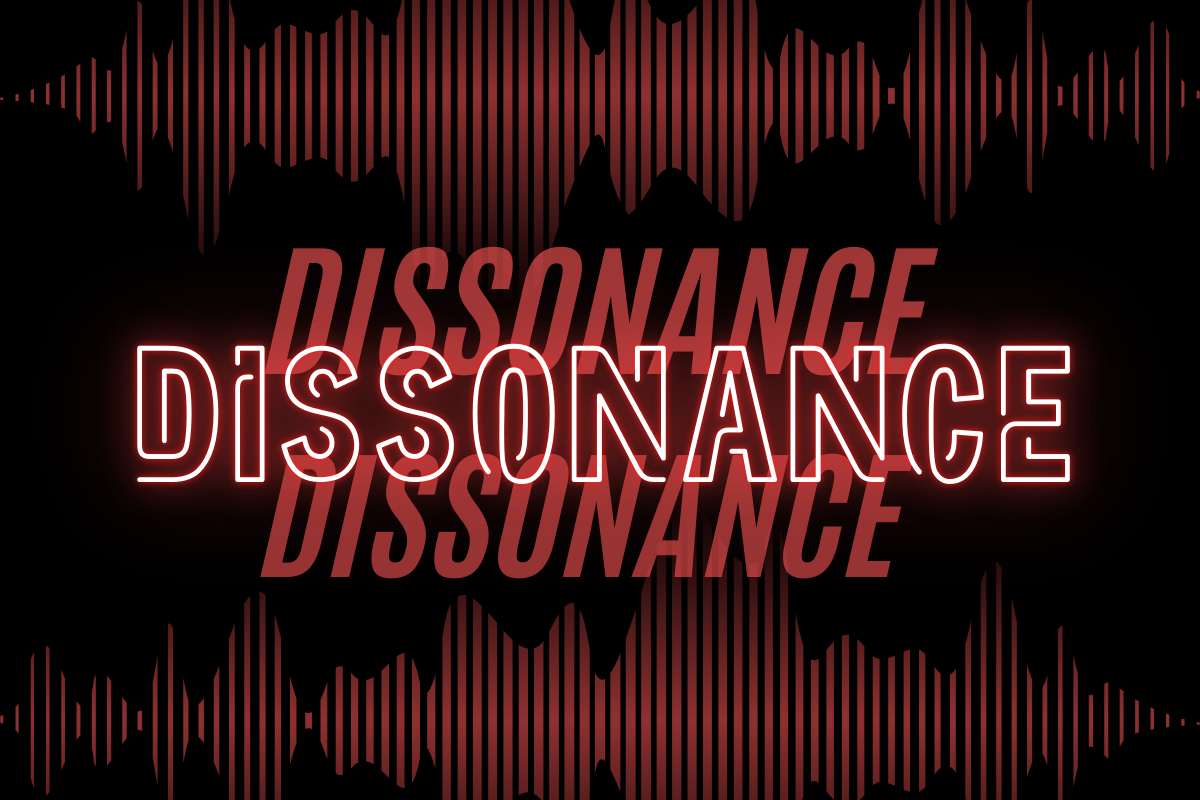Ragan and PR Daily’s word of the year: dissonance
And other selections from across dictionaries and media.

Each year, the editors of Ragan Communications and PR Daily select a word characterizing the climate public relations professionals have navigated throughout the past year.
We have selected “dissonance” as our 2024 word of the year.
Dissonance, of course, is often used in a musical sense, describing discordant notes played simultaneously. It’s derived from the Latin dis-, here meaning “apart,” and sonare “to sound, make a noise,” giving it the literal meaning “a difference in sound.”
But through its lifetime in English it has also been used more broadly: According to the Oxford English Dictionary, as far back as the 1400s, it’s recorded as a word for “disagreement,” “incongruity,” or “inconsistency.”
Merriam-Webster defines it as a “lack of agreement… especially : inconsistency between the beliefs one holds or between one’s actions and one’s beliefs,” with that “especially” addendum notably appearing in the phrase “cognitive dissonance.”
This has not been a year categorized by what the average person would call harmony.
The public, as a whole, is not singing the same — or even a complementary — tune, and those who believe otherwise may be said to be suffering from dissonance of that cognitive variety.
We have encountered dissonance across mainstream media, social media and even within organizations as sociopolitical perspectives and belief systems clash.
We have observed dissonance between what brands and legislators believe people want, what they actually want, and their reasons for wanting it.
We see dissonance between the desires of employees and the willingness and ability of employers to provide them, and dissonance surrounding corporate values and practices such as DE&I and ESG.
We struggle to find our footing in a tech boom rife with dissonant perceptions of what AI tools can and should do. We even uncovered dissonance between what journalists want and what PR pros do.
Communicators strive to be heard over a cacophony of clangorous confusion, and they run the risk of their messaging going awry through all that clamor.
But there is harmony to be found in many spaces, even for comms and PR pros.
Those organizations who have done the work to home in on and meet the needs of the audiences they serve — to build trust and embrace transparency and humanity — are in a stronger position than ever by sheer contrast with those who have broken trust with their customers, their employees and a public keen to seize upon faults and missteps.
Leaders who have made a habit of showing their cards, demonstrating their humanity, and embodying gratitude and generosity are more likely to get their teams to sing along.
With a melodious commitment to living out your organization’s mission and values in earnest, a pitch-perfect commitment to tone and storytelling, and a rhythmic consistency across platforms, your messaging may yet ring out above the noise.
More words of the year
We’re not the only ones to marry our word of the year with the ubiquitous tension and anxiety in the zeitgeist today: Merriam-Webster went with “polarization.”
Others were more specifically social media targeted: Dictionary.com chose “demure” following the word’s moment in the spotlight, while Oxford University Press more pessimistically selected “brain rot.”
The Economist pulled no punches with its pick, “kakistocracy,” a word for government by a society’s least suitable or competent citizens.
Cambridge Dictionary took a less contentious tack and opted for “manifest” thanks to quips by Dua Lipa, Simone Biles and other big names in pop culture and sports.
What would you select as your word of the year?
Jess Zafarris is editor-at-large for Ragan and PR Daily and an author who writes about etymology and words.






